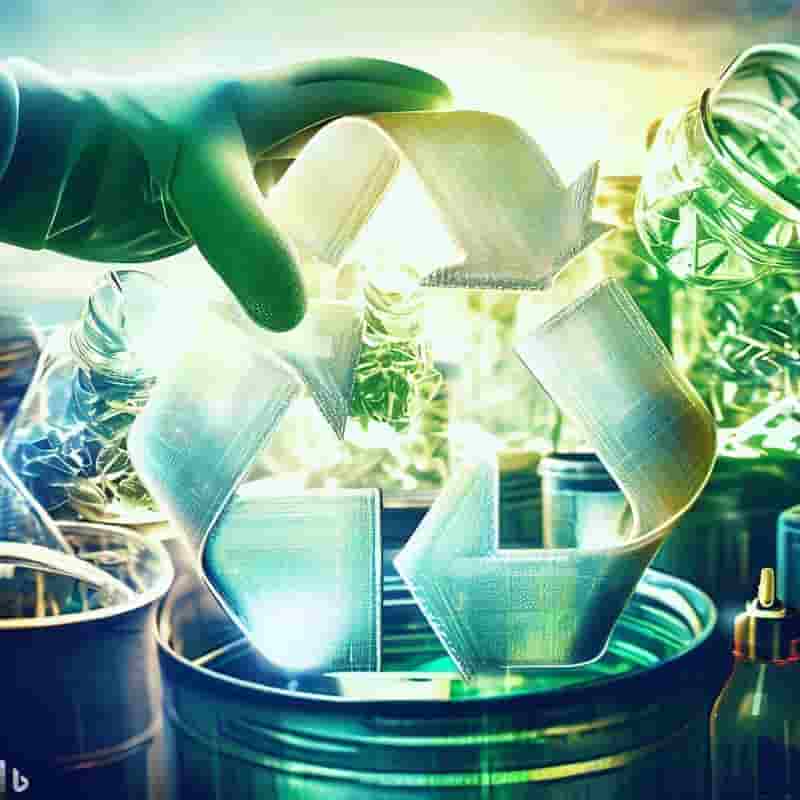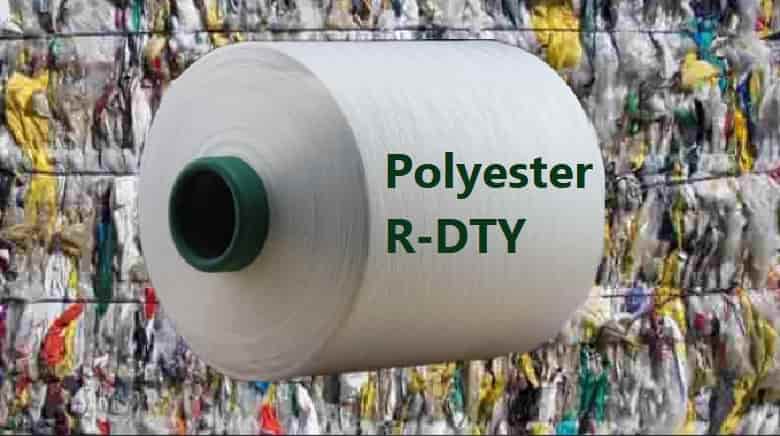Petrochemicals PET-Bottle-grade – Will Indorama be the most prominent player in the PET recycling industry? 21-08-2023 - Arhive
Petrochemicals PET-Bottle-grade

- Polymers : PET – r-PET – Filament grade semidull chips -Filament grade bright chips – Ny6 – My66 – PP
- Feedstocks : PX – PTA – MEG – CPL – Adipic Acid – Benzene – ACN – Ethylene – Phenol – Naphtha
- Textile : Polyester POY – DTY – FDY – PSF – Recycled Polyester POY – Nylon POY – DTY – FDY Spandex 20-30-40 -Viscose Staple Fiber VSF Acrylic Staple Fiber

| Polyestertime | |||
| ITEM | 14/08/2023 | 21/08/2023 | +/- |
| Bottle grade PET chips domestic market | 7,050 yuan/ton | 7,075 yuan/ton | +25 |
| Bottle grade PET chips export market | 895 $/ton | 895 $/ton | – |
| Filament grade Semidull chips domestic market | 6,820 yuan/ton | 6,860 yuan/ton | +40 |
| Filament grade Bright chips domestic market | 6,860 yuan/ton | 6,890 yuan/ton | +30 |
| Pure Terephthalic Acid PTA domestic market | 5,845 yuan/ton | 6,015 yuan/ton | +170 |
| Pure Terephthalic Acid PTA export market | 790 $/ton | 760 $/ton | -30 |
| Monoethyleneglycol MEG domestic market | 3,940 yuan/ton | 4,000 yuan/ton | +60 |
| Monoethyleneglycol MEG export market | 462 $/ton | 464 $/ton | +2 |
| Paraxylene PX FOB Taiwan market
Petrochemicals PET-Bottle-grade |
1,077 $/ton | 1,043 $/ton |
-34 |
| Paraxylene PX FOB Korea market | 1,054 $/ton | 1,020 $/ton | -34 |
| Paraxylene PX FOB EU market | 1,180 $/ton | 1,180 $/ton | – |
| Polyester filament POY 150D/48F domestic market | 7,680 yuan/ton | 7,600 yuan/ton |
-80 |
| Recycled Polyester filament POY domestic market | 7,350 yuan/ton | 7,250 yuan/ton | -100 |
| Polyester filament DTY 150D/48 F domestic market | 9,200 yuan/ton | 9,150 yuan/ton | -50 |
| Polyester filament FDY 68D24F
Petrochemicals PET-Bottle-grade |
8,800 yuan/ton | 8,800 yuan/ton | – |
| Polyester filament FDY 150D/96F domestic market | 8,300 yuan/ton | 8,220 yuan/ton | -80 |
| Polyester staple fiber 1.4D 38mm domestic market | 7,450 yuan/ton | 7,530 yuan/ton | +80 |
| Caprolactam CPL domestic market | 12,850 yuan/ton | 12,700 yuan/ton |
-150 |
| Caprolactam CPL overseas market | 1,550 $/ton | 1,500 $/ton | – |
| Nylon 6 chips overseas market | 1,750 $/ton | 1,750 $/ton | – |
| Nylon 6 chips conventional spinning domestic market | 13,500 yuan/ton | 13,250 yuan/ton | -250 |
| Nylon 6 chips high speed spinning domestic market
Petrochemicals PET-Bottle-grade |
14,450 yuan/ton | 14,250 yuan/ton | -200 |
| Nylon 6.6 chips domestic market | 18,000 yuan/ton | 18,000 yuan/ton | – |
| Nylon6 Filament POY 86D/24F domestic market | 16,600 yuan/ton | 16,400 yuan/ton | -200 |
| Nylon6 Filament DTY 70D/24F domestic market | 18,800 yuan/ton | 18,600 yuan/ton- | -200 |
| Nylon6 Filament FDY 70D/24F | 17,600 yuan/ton | 17,500 yuan/ton | -100 |
| Spandex 20D domestic market
Petrochemicals PET-Bottle-grade |
36,500 yuan/ton | 36,500 yuan/ton | – |
| Spandex 30D domestic market | 35,000 yuan/ton | 35,000 yuan/ton | – |
| Spandex 40D domestic market | 31,500 yuan/ton | 31,800 yuan/ton | +300 |
| Adipic Acid domestic market | 9,800 yuan/ton | 9,450 yuan/ton | -350 |
| Benzene domestic market
Petrochemicals PET-Bottle-grade |
7,650 yuan/ton | 7,850 yuan/ton | +200 |
| Benzene overseas market | 903 $/ton | 904 $/ton | +1 |
| Ethylene South East market | 810 $/ton | 860 $/ton | +50 |
| Ethylene NWE market | 624 $/ton | 691 $/ton | +67 |
| Acrylonitrile ACN domestic market
Petrochemicals PET-Bottle-grade |
8,300 yuan/ton | 8,200 yuan/ton | -100 |
| Acrylonitrile ACN overseas market | 1,200 $/ton | 1,200 $/ton | – |
| Acrylic staple fiber ASF domestic market | 13,600 yuan/ton | 13,600 yuan/ton | – |
| Viscose Staple Fiber VSF domestic market | 12,800 yuan/ton | 12,850 yuan/ton | +50 |
| PP Powder domestic market
Petrochemicals PET-Bottle-grade |
7,175 yuan/ton | 7,450 yuan/ton | +275 |
| Naphtha overseas market | 665 $/ton | 645 $/ton | -20 |
| Phenol domestic market | 8,212 yuan/ton | 8,045 yuan/ton | +167 |
r-PET high end eco-friendly chips =7,700 yuan/ton — 7,700 yuan/ton –
- Petrochemicals PET Bottles – Filament grade Bright chips domestic market 14-08-2023
- New enzyme technology for environmentally friendly plastic recycling
Petrochemicals PET-Bottle-grade
AMB Spa, an Italian packaging company, is taking significant strides towards sustainability by partnering with Indorama, a prominent player in the PET recycling industry
This collaboration aims to revolutionize the production of food-grade packaging film by utilizing post-consumer recycled PET trays, thus contributing to the reduction of plastic waste and environmental impact.
The foundation of this innovative endeavor lies in the utilization of PET flakes sourced from Indorama’s PET tray recycling operations. Nestled in Verdun, France, Indorama’s facility specializes in transforming post-consumer PET trays into high-quality flakes, which are integral to the production of food-safe packaging materials. In 2022, this pioneering process underwent meticulous scrutiny by the European Food Safety Authority. Leveraging cutting-edge NGR technology and a sophisticated melt-state polycondensation approach, the recycling process demonstrated its capability to uphold stringent safety standards. The assessment highlighted its remarkable ability to mitigate the migration of potential unknown contaminants, thus cementing the recycled PET’s viability for applications involving food contact. This validation effectively erased any safety concerns associated with incorporating recycled PET into food-grade materials.
The collaboration between AMB and Indorama holds a dual benefit for both the environment and the packaging industry. By amalgamating AMB’s packaging expertise with Indorama’s PET recycling prowess, the partnership seeks to divert a staggering 150 million post-consumer trays away from detrimental outcomes such as landfill disposal or incineration. This concerted effort represents a substantial stride towards mitigating the environmental burden posed by plastic waste. With this trajectory, the partnership envisions reaching this ambitious target by the culmination of 2025, thereby aligning their endeavors with the global call for heightened sustainability practices.
In the context of broader environmental imperatives, the European Union has set forth comprehensive goals to revolutionize the packaging landscape. By 2030, the aim is to render all packaging materials recyclable, further escalating this ambition to enabling large-scale recycling by 2035. Indorama is at the vanguard of this movement, embodying a commitment to eco-conscious practices. With aspirations as lofty as they are impactful, Indorama is steadfastly working towards an annual input of 750,000 tons of post-consumer PET bales by 2025. This commendable pursuit of scale is underpinned by the expansion of PET recycling operations, a testament to Indorama’s dedication, which extends even to international dimensions with the augmentation of its operations in Brazil, as announced on August 9th.
The fusion of AMB’s packaging innovation and Indorama’s PET recycling breakthroughs exemplifies the power of collaboration in propelling sustainability. By integrating recycled PET into food-grade packaging film, the partnership fosters a circular economy model that significantly curtails the need for virgin plastic production. This resonates not only with evolving consumer preferences for eco-friendly products but also with the imperative to preserve and restore the planet’s health.
In conclusion, the alliance between AMB Spa and Indorama stands as a beacon of progress within the packaging industry. By harnessing recycled PET from post-consumer trays, they are reshaping the landscape of food-grade packaging films. Their commitment not only aligns with the European Union’s sustainability goals but also sets a remarkable precedent for industry collaboration that prioritizes innovation, environmental stewardship, and a circular economy. In an era marked by environmental challenges, this partnership represents a significant leap towards a more sustainable future.
